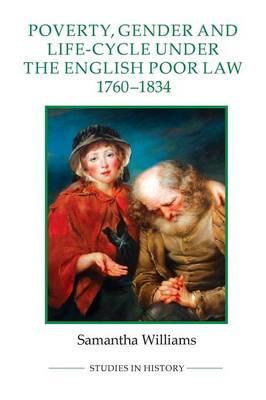Poverty, Gender and Life-Cycle Under the English Poor Law, 1

Poverty, Gender and Life-Cycle Under the English Poor Law, 1
Samantha Williams is a university lecturer in local and regional history at the Institute of Continuing Education, Cambridge, and a Bye-Fellow in History, Girton College, Cambridge.
PRP: 254.90 Lei
Acesta este Prețul Recomandat de Producător. Prețul de vânzare al produsului este afișat mai jos.
229.41Lei
229.41Lei
254.90 LeiLivrare in 2-4 saptamani
Descrierea produsului
Samantha Williams is a university lecturer in local and regional history at the Institute of Continuing Education, Cambridge, and a Bye-Fellow in History, Girton College, Cambridge.
Detaliile produsului
- Categoria: World History
- Nr. pagini: 208
- Limba: English
- Cod: BRT9781843838661










